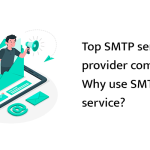In the constantly shifting landscape of technology and interconnected business ecosystems, business security is imperative. While the digital age presents numerous opportunities, it also exposes businesses to a myriad of security risks. As businesses increasingly rely on digital platforms, the need for comprehensive security has never been more important. In this guide, we’ll present ten essential strategies to fortify your business against potential security risks and breaches. Let’s get started!
Provide employee security training
One important area of defense when it comes to keeping your business secure is providing employees with thorough security training. Employees may fall vulnerable to cybercriminals trying to access company information by pretending to be others on their team and can fake phone numbers, email addresses, and more.
Because of how vulnerable employees can be to these malicious efforts, you must educate your employees on the best security practices, such as creating strong passwords, identifying phishing attempts, and the importance of not sharing sensitive information.
Implement strong data encryption
Data encryption is a security technique involving the conversion of data into codes to prevent unauthorized access. Your business data is encrypted using an algorithm paired with an encryption key. Only those with the correct decryption key can access and revert the encrypted data back to its original format.
To ensure business data integrity, encrypt your sensitive data, both in transit and at rest. This ensures that even if unauthorized access occurs, your data remains unreadable without the correct encryption key.
Install firewalls and other security software
Firewalls, API security platforms, and other security software provide an extra layer of security for your business. Consider working with a business information security officer to pinpoint which security platforms your business would benefit the most from. Installing and regularly updating your firewalls and antivirus or anti-malware software protects your business against external threats.
Complete routine software updates
In addition to investing in the latest security software, ensure that your business is regularly updating any security measures you employ. By keeping your operating systems, antivirus programs, and applications regularly updated, you ensure your software is compatible with the latest security patches and updates. Outdated software leaves you more vulnerable to criminal activity, as cybercriminals often exploit outdated software to gain access to businesses.
Enforce backup and recovery protocols
Backup and recovery protocols are essential to your business’s data management and cybersecurity strategy. These methods ensure the availability, integrity, and continuity of data in the event of data loss, system failures, and security breaches. This includes scheduling regular backups of critical data, data classification, backup storage, versioning, backup encryption, a disaster recovery plan, and more.
You also need to regularly test and update your protocols to ensure your data can be successfully restored. Testing can help identify any issuers within your backup system and ensure your organization is prepared for a real data loss situation. By implementing a robust backup and recovery plan and assigning responsibilities to your team, you significantly reduce your risk of data loss and minimize downtime when faced with unexpected circumstances.
Create an incident response plan
Similarly to your backup and recovery protocols, you also need to implement an incident response plan (IRP) for your business. An IRP is a structured set of procedures for your organization to follow in the event of a cybersecurity incident. The primary goal of your IRP is to effectively and efficiently manage the debt, minimize damage, and reduce recovery time and costs.
Key components of a strong incident response plan include preparation, identification, containment, eradication, recovery, and post-incident activities such as documentation, analysis and improvement, communication, and legal and regulatory compliance. Develop and regularly update your IRP to address any potential security breaches.
Invest in physical security
Physical security is another crucial aspect of your overall business security. Physical security involves measures to protect your physical assets, facilities, and personnel from unauthorized access, theft, vandalism, and other physical threats. If your business operates in a physical location, some key security measures to take include installing surveillance cameras, intrusion detection systems, lighting, visitor management, and securing your data centers. Effective physical security measures complement cybersecurity efforts by addressing vulnerabilities that may not be solely related to digital threats.
Conduct regular security audits
Regular security audits help you identify potential vulnerabilities in your systems, networks, and processes. Proactively identifying weaknesses enables you to address them before they’re exploited by malicious actors. If your business is in an industry with strict regulatory requirements and compliance standards, regular audits can also help ensure your business remains compliant with these regulations and avoids any legal consequences or fines.
Security audits can also help your team detect unusual or suspicious activities on your network and systems. Early detection allows for a prompt response, minimizing breach impact. Overall, regular security audits play a crucial role in maintaining a strong and adaptive security posture.
Ensure vendor security
Vendor security, also referred to as third-party security or supplier security, refers to the measures and practices to assess, manage, and mitigate security risks with the products, services, and technologies provided by third-party vendors and partners. This is especially important to businesses that rely on external entities for various services, such as document signature platforms and other software, cloud services, infrastructure, and other components critical to business operations.
By assessing and managing the security practices of vendors you employ, you can mitigate risks to your business, protect sensitive information, and ensure the integrity and continuity of your business operations.
Develop strict access controls
Access controls are the mechanisms and policies you put in place to manage and regulate access to physical and digital resources. Access controls are crucial to ensuring that only authorized individuals and systems can access sensitive information, facilities, and systems within your business. These controls help your business create a secure environment that supports the confidentiality, integrity, and overall resilience of your operations.
Proactive security
In the pursuit of success and innovation, it’s crucial not to underestimate the importance of security. The strategies and practices we’ve discussed here act as the building blocks of a comprehensive security framework. However, keeping your business secure is not a one-time endeavor but requires an ongoing commitment to adapt and fortify defenses against evolving threats. Remember, investing in security is an investment in the sustained success of your business. As you incorporate these practices, you not only protect your assets but also fortify the foundation upon which your business thrives.











